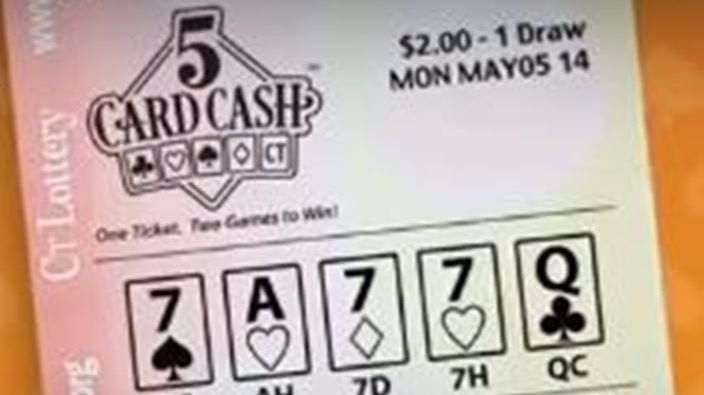
Missing from article: Gambling’s dark side
As a recovering gambling addict, abstinent since 2008, the article “CT Lottery, UConn Partner for $5 scratch ticket. What it means for fans” [Dec. 18] resonated deeply with me. My harrowing journey from addiction, largely fueled by the CT Lottery, has transformed me into a vocal advocate against predatory gambling.
The article paints an enticing picture of lottery winnings, yet glaringly omits the stark reality of gambling addiction. This glamorized portrayal dangerously obscures the grim truth of gambling’s dark side, a narrative I know all too well and find alarmingly absent in such coverage.
Furthermore, I have noticed a pattern in media coverage of gambling addiction. Voices like mine, those who have been directly impacted by the ravages of gambling, are seldom heard.
Instead, the focus tends to be on programs funded by the gambling industry, where there’s a hesitancy to speak openly about predatory gambling due to potential conflicts of interest. This creates a skewed and incomplete picture of the situation.
While your piece celebrates the ticket’s potential, it neglects a fundamental responsibility: Educating the public about gambling’s inherent risks. This oversight is particularly significant when targeting susceptible demographics like college students and sports enthusiasts.
A balanced narrative is crucial. Your readers deserve to understand not only the allure but also the potential devastations of gambling, including addiction. Providing this comprehensive perspective upholds journalistic integrity and fosters a well-informed society, alert to both the temptations and dangers of gambling.
In advocating for comprehensive coverage, my aim is to raise awareness about gambling addiction.
Adam Osmond, West Hartford
UConn Health is tops for this patient
UConn Health Center has literally saved my life several times. The Emergency Room staff responds efficiently, with understanding and compassion. My UConn medical team, pharmacists, techs, doctors, APRNs, and auxiliary staff are outstanding. As an elderly person, I need the best, and UConn provides it. Thank you, UConn Health.
Devora Epstein, West Hartford
Republicans use propaganda to mobilize the vote
Why do so many people still support Donald Trump in spite of his actions and defiance of the rule of law? Is it because the MAGA King is perceived as being tougher than ever because he clearly considers himself above the law? Or could it be explained by the conservative strategy of replacing a real issue with a false one and drawing people into a maelstrom of craziness, delusion, paranoia and hatred?
Right wing media have taken the real problem of immigration and turned it into an opportunity to tap into people’s fears and prejudices, creating a focus of hatred: the immigrants themselves and their enablers, the Democrats.
Republican gun extremists have taken the problem of gun safety and made it an issue of the Second Amendment and our freedom to bear arms when we cannot protect ourselves from mass murderers mowing us down in schools, churches and malls with AR-15s.
Republican governors want you to believe that trans people and Black history courses are destroying our moral standards and consciousness when those very things teach us tolerance and decency, outcomes that many Republicans apparently see as detrimental to the American way.
The Republican Party has become less a party that serves the interests of the people and more an organization that creates propaganda with the goal of spreading grievances and hatred — in order to mobilize the Republican vote.
Rosemary Noonan, Tolland